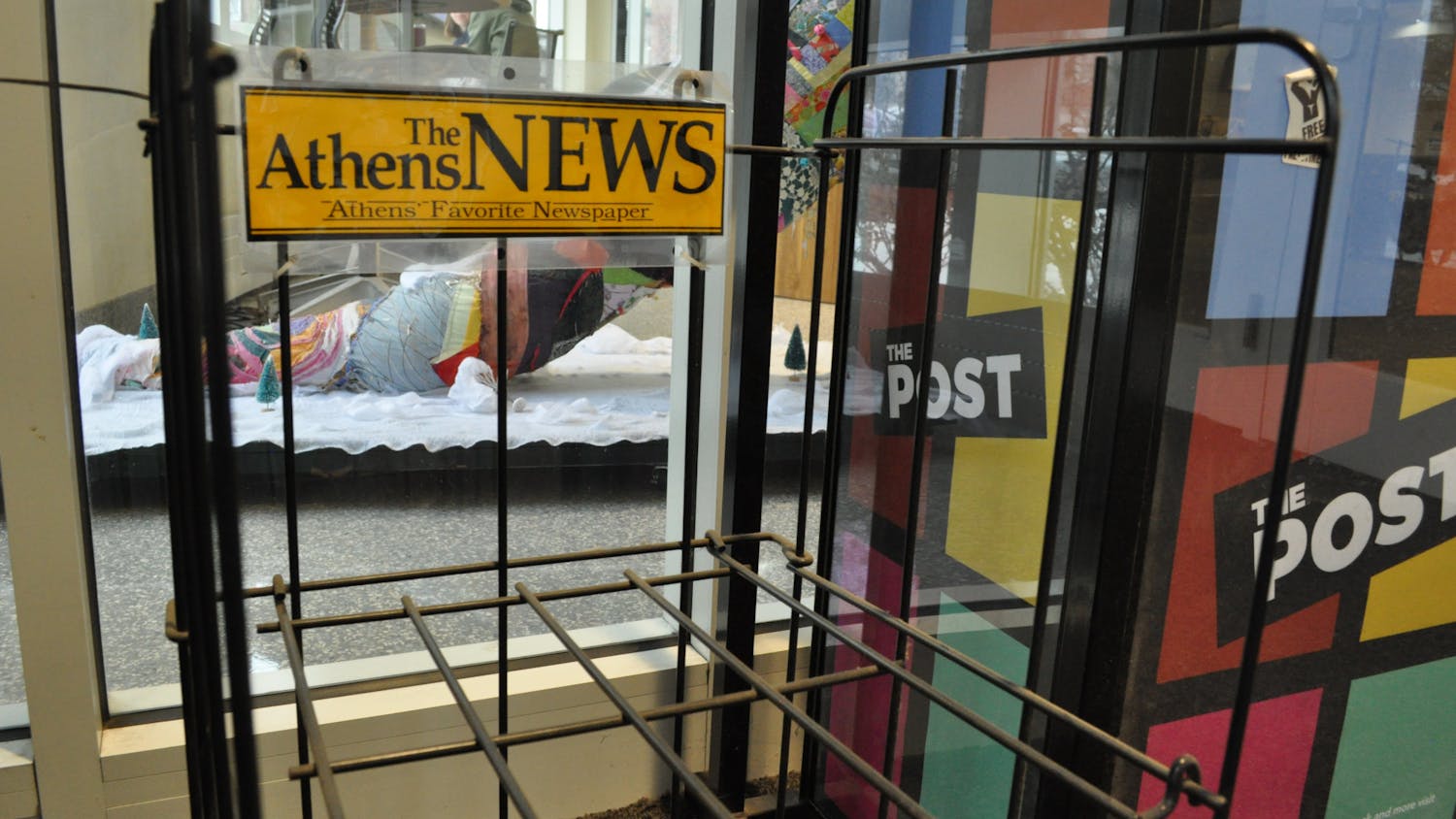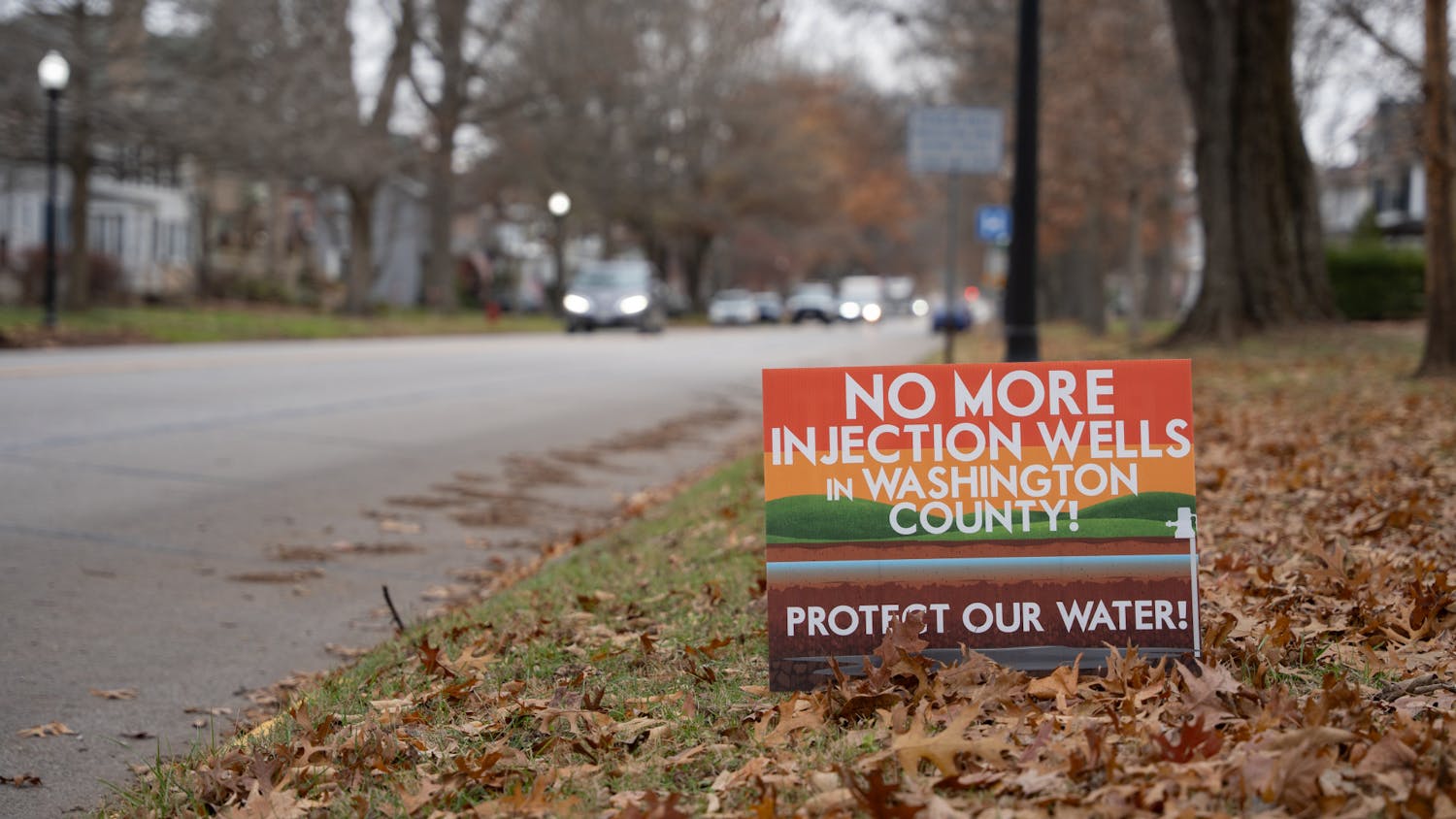Among the eight major specified colleges within Ohio University, opinions vary on the necessity — and ethical nature — of unpaid internships.
Whether an Ohio University student, faculty member or administrator supports or opposes working an unpaid internship depends on what sub-college he or she is a part of.
Take the College of Business for instance.
The school takes a hard-line approach on unpaid internships.
“We don’t do them,” Hugh Sherman, dean of OU’s College of Business, said. “Business students are in demand, so they’re all paid.”
And oftentimes, they’re paid well.
Megan Baird, a junior studying accounting and management information systems, spent 10 weeks at the J.M. Smucker Company — or “Smucker’s” — this past summer. She was paid $18 per-hour.
She said the experience felt more like a temporary job than an internship and being paid was a substantial motivator, adding landing an internship as a business student is “so much easier” than many people think and the college is “throwing” opportunities at its students.
“In 99 percent of the cases, what businesses are asking students to do as interns is pay worthy,” Tracy Corrigan, director of career management for the College of Business, said. “The word ‘intern’ has really become convoluted.”
Like Baird and many other business majors, interns from OU’s Russ College of Engineering and Technology made respectable salaries this past year.
The average salary for a Russ College intern was $17 per-hour, Dean Pidcock, director of professional experiences in Russ, said.
“It’s very, very rare to have an unpaid position in engineering,” he said.
One such successful intern was Swanagan Ray, a senior studying electrical engineering. He completed a co-op, which involves a student working as an intern for two or more semesters, with DuPont’s Washington Works plant in Parkersburg, West Virginia. Aside from being compensated for his work, DuPont recently offered him the chance to fill the role he had worked in permanently.
“The entire internship was incredibly valuable to me,” Ray said. “It enabled me to gain real world skills in a specific area of engineering, provided an income flow during each rotation and added many new contacts to my professional network.”
The National Association of Colleges and Employers disclosed 52 percent of interns in 2013 were paid. Of those, 72 percent worked in the private sector, according to the New York Times.
However, within the College of Arts & Sciences, Scripps College of Communication, College of Health Sciences and Professions, Heritage College of Osteopathic Medicine, College of Fine Arts and Patton College of Education, it’s far more likely for OU students to fall into the 48 percent of interns who are not paid for their work.
Yet, few seem to be bothered by the lack of pay and believe their payoff will come down the road with a job offer.
“You don’t need money to benefit from the experience,” Emma Fish, a junior studying athletic training within the College of Health Sciences and Professions, said. “As long as you’re not scrubbing toilets and doing things that aren’t helping you towards your future career, then it’s the path you need to take.”
In an unpaid internship, a company must provide an intern with “classroom experience in a real world setting” rather than solely using the intern for his or her work, Scott Titsworth, dean of the Scripps College, said, citing the U.S. Department of Labor Wage and Hour Division fact sheet on the criteria for-profit organizations must meet. He said those same criteria do not apply to non-profit organizations providing similar internships, which results in somewhat of a gray area.
Bernhard Debatin, director of studies for the journalism Honors Tutorial College program, said he sees a benefit to unpaid internships in classroom settings. However, he said many unpaid internships are unethical and interns can be exploited for their need to complete an internship as a requirement for graduation.
“If a lot of internships are unpaid, then only those who either already have money or those who are willing to go into deeper debts are able to do it,” he said. “You may end up with more people from the upper-middle class because they can afford to take unpaid internships, and on the other hand, people who come from poor or less well-off environments will struggle.”
Within the College of Arts & Sciences, Harvey Ballard, associate professor, created an internship program easily accessible to students with majors or minors within the Department of Environmental and Plant Biology — but those internships are unpaid.
Ballard contacted various organizations, even those without internships, and asked if any would be willing to set aside an internship type position for OU students. Out of the 20 organizations he contacted, all replied.
“A lot of organizations worthy of having internship programs can’t afford to pay people,” he said.
Ann Paulins, the senior associate dean for research and graduate studies within the Patton College, said she would only advocate for a student to take an unpaid internship if it provides quality experience or opportunities down the line.
“If the payoffs of an unpaid internship site present a strong foundation from which a career can be built, then that is a rational choice,” she said. “Being paid is a nice, and often necessary, characteristic of an internship — some students forgo other part-time work to focus on internship work and will have greater opportunity costs for the internship.”
If the experience is truly worthwhile, whether or not the internship is paid shouldn’t matter, John Henning, associate dean for academic engagement and outreach in the Patton College, said.
“I think under the right circumstances, unpaid internships are ethical,” he said. “I think they can be unethical, but I don’t even know what we would do in teacher education if we had paid internships.”
Cory Pratt, a graduate student studying film in the College of Fine Arts, said he had an unpaid internship this summer at Big Beach Films, a studio best known for producing the movie Little Miss Sunshine.
As an intern, he read, summarized and critiqued screenplays sent to the studio.
“Even though the internship was unpaid, I feel like my time there was worth every second,” he said. “Especially in the film industry, your connections to those who are already established can make or break you.”
He added the benefits of having an internship outweigh the cost of not being paid.
“Find a place that fits your interest, and just go for it,” Pratt said. “It can seem daunting, especially when there is no pay involved, but immersing yourself in these experiences and making these connections are vital to personal and career growth.”
Jeremy Hill, Alisa Warren, Elise Zeitzheim, Elizabeth Backo, Sean Wolfe, Megan Henry, Kaitlin Coward, Alex Meyer and Sydney Dawes contributed to this report.





